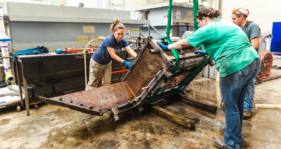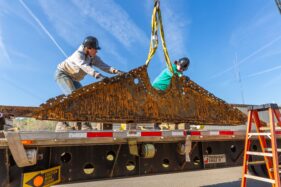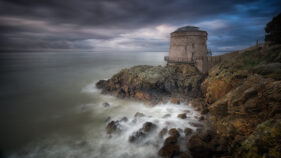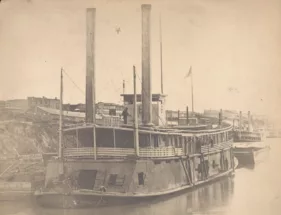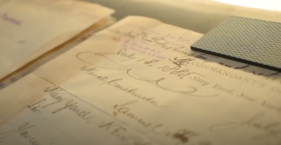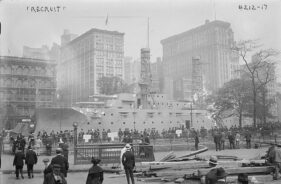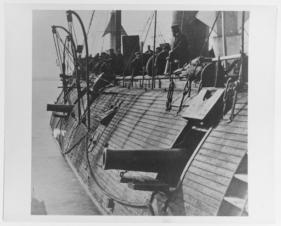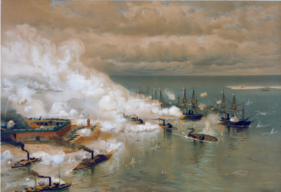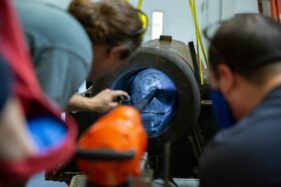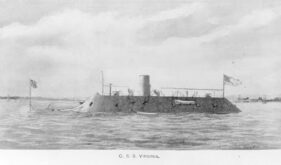Tag: Military
-
Lifting and flipping USS Monitor’s Condenser 🏗️💦
For the first time in 160 years, USS Monitor's condenser bed is right-side up! In this video series, you can watch our Conservation team separating the condenser and its support bed, flipping the bed, and lifting both elements into their new treatment tank.
-
USS Monitor Skeg Elements Move
Watch our Conservation team move USS Monitor's skeg elements out of their treatment tanks and over to our tank farm where they will undergo dry-ice cleaning.
-
Conserving the Samuel Hartt Pook Papers
These documents outline, firsthand, the career of Naval Architect Samuel Hartt Pook. These historic papers highlight one of the most significant advancements in American Naval history. At the onset of the Civil War, Pook and his father (also a naval architect) aided the transition of the US fleet from wooden to iron and steel-hulled warships.
-
Boring USS Monitor’s Dahlgren Guns
Monitor’s guns are the largest guns to ever be bored, giving this significant conservation step its own mark in history. The removal of the marine material was the final mechanical cleaning step before the guns can be dried and put on display.
